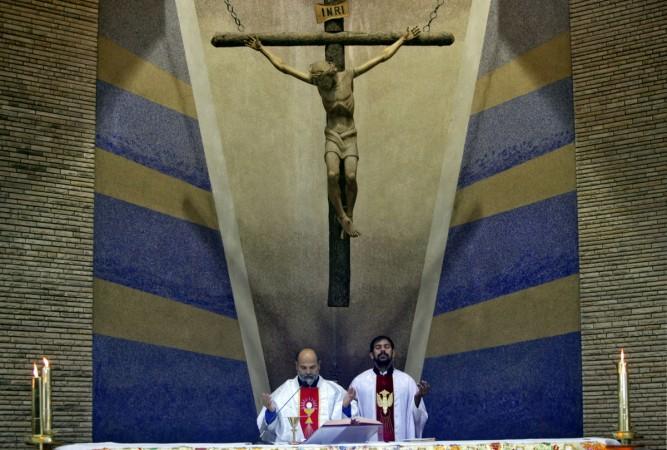
In the fourth such incident since December last year, a church in South Delhi's Vasant Kunj area was vandalised early on Monday morning.
The incident took place just a few days ahead of the Delhi Assembly elections, which are due to take place on 7 February. While police suspect it may be a case of robbery and not vandalism, the priest at St. Alphonsa Church claimed otherwise. He said that nothing valuable had been stolen so it cannot be a case of robbery.
On 2 February at around 3 a.m., some unidentified men entered the premises of St. Alphonsa Church and ransacked the cupboards, NDTV reports.
Church members said that the men even opened the tabernacle, which is the place of dwelling or sanctuary of the divine and took the ciborium - the vessel containing the consecrated hosts of the sacrament of Holy Communion - and emptied it on the table.
A similar incident took place on 14 January when unidentified men attacked a church is west Delhi's Vikaspuri area. The men smashed the window glasses and threw Mother Mary's statue on the floor. Police later arrested the accused after identifying them with the help of the CCTV footage.
This incident was believed to have been orchestrated to build communal tensions; however, police denied the connection between the arrested accused and any fringe groups.
Following the repeated attacks on the churches of the country's capital city, Delhi's Archbishop Anil JT Couto said that all the attacks seem to be pre-planned. "A clear pattern of orchestrated attacks is emerging as more and more churches are targetted, vandalised and set on fire," he said.
Another church in Delhi's Rohini area had caught fire a few days ago, during which the Christmas crib kept outside the church was reduced to ashes.
The first of such attacks started in December when a catholic church in East Delhi's Dilshad Garden area was burnt down. The fire in Saint Sebastian's Church, on 1 December, burnt down the holy Bible, the altar, statues, as well as the Cross. Police found traces of combustible fuels from the premises during investigation.
Post the first attack, more than 2,000 Catholics staged a protest demanding immediate probe into the incident.








